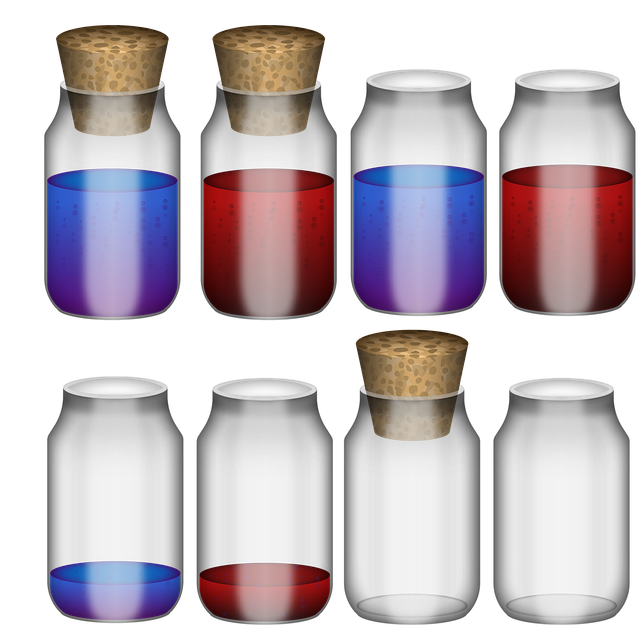Cognitive Behavioral Therapy (CBT) offers a structured path to overcoming opioid addiction by addressing the connection between thoughts, feelings, and behaviors. This approach helps individuals identify and challenge negative thought patterns related to drug use, reframing them with healthier alternatives. Integrated with mindfulness practices like yoga and meditation, CBT reduces stress and cravings. Crisis Intervention Training (CIT) and online recovery support groups enhance its effectiveness, providing a comprehensive framework for managing psychological and physical addiction. Evidence-based techniques, tailored coping skills, and trauma-informed care empower those struggling with opioid use disorder to achieve lasting recovery.
Cognitive-behavioral therapy (CBT) offers a powerful approach to overcoming opioid addiction by empowering individuals to reframe negative thoughts and behaviors. This article delves into the connection between CBT and managing addiction, focusing on reframing negative thought patterns as a core strategy. We explore practical techniques and provide actionable steps for implementing CBT in the context of opioid addiction, offering valuable insights for those seeking to break free from this challenging condition using evidence-based methods.
- Understanding the Connection Between Cognitive-Behavioral Therapy and Overcoming Opioid Addiction
- Reframing Negative Thoughts: A Core Component of CBT for Opioid Addiction
- Practical Strategies for Implementing CBT Techniques in Overcoming Opioid Addiction
Understanding the Connection Between Cognitive-Behavioral Therapy and Overcoming Opioid Addiction

Cognitive-behavioral therapy (CBT) has emerged as a powerful tool in the fight against opioid addiction, offering individuals a path to understanding and overcoming their struggles. This therapeutic approach delves into the intricate connection between thoughts, feelings, and behaviors, which is particularly relevant in the context of addiction. By identifying and challenging negative thought patterns associated with opioid use, CBT equips clients with the skills to make lasting changes.
In the journey towards sobriety, CBT provides a structured framework for individuals to explore their cognitive processes. It helps them recognize how certain thoughts contribute to triggering behaviors related to drug use. Through this process, clients learn to reframe negative thoughts and replace them with healthier alternatives. For instance, personal mindfulness plans tailored to individual needs can include practices like yoga and meditation, which have been shown to reduce stress and cravings, while also fostering holistic wellness. Integrating nutrition education into these programs ensures a comprehensive approach to healing, addressing the mind-body connection crucial for long-term recovery.
Reframing Negative Thoughts: A Core Component of CBT for Opioid Addiction

Reframing negative thoughts is a core strategy within Cognitive Behavioral Therapy (CBT) for opioid addiction, offering a powerful tool to disrupt harmful thought patterns and promote recovery. In the context of overcoming opioid addiction, CBT helps individuals identify and challenge distorted thinking that contributes to drug-seeking behaviors. By learning to reframe these negative thoughts, clients gain a new perspective, transforming self-destructive beliefs into more realistic, positive ones. This process empowers them to make healthier choices and develop strategies to manage cravings and triggers effectively.
This approach encourages active participation in one’s recovery journey, fostering self-awareness and resilience. Through CBT techniques, individuals learn to recognize negative thought patterns and replace them with healthier alternatives, which can significantly improve their ability to maintain sobriety. Integrating this knowledge into daily life, especially during the early stages of recovery where healthy habits are being established, proves invaluable. Additionally, Crisis Intervention Training, which equips individuals to recognize emergency situations, combines well with CBT, providing a comprehensive framework for managing both psychological and physical aspects of opioid addiction. Recovery Support Groups Online also play a crucial role in this process by offering peer support and sharing strategies for overcoming challenges, reinforcing the positive changes fostered by CBT.
Practical Strategies for Implementing CBT Techniques in Overcoming Opioid Addiction

Cognitive Behavioral Therapy (CBT) offers practical strategies to help individuals overcome opioid addiction by challenging negative thought patterns and replacing them with healthier alternatives. One key CBT technique is identifying and reframing cognitive distortions, such as all-or-nothing thinking or catastrophizing, that contribute to drug cravings and relapse. For example, instead of viewing a slip-up as an absolute failure, individuals can learn to view it as a setback from which they can recover.
In the context of opioid addiction, Crisis Intervention Training (CIT) equips individuals to recognize emergency situations and respond effectively, a vital component of trauma-informed care often offered at specialized Addiction Treatment Centers. CBT can be integrated into these comprehensive programs, combining evidence-based practices with tailored strategies to address the unique challenges faced by those struggling with opioid use disorder. By focusing on both cognitive restructuring and building coping skills, CBT empowers individuals to take control of their recovery journey and cultivate a lasting, positive outlook.
Cognitive-behavioral therapy (CBT) offers a powerful approach to overcoming opioid addiction by addressing the root causes of negative thoughts and behaviors. By reframing these thoughts, individuals can break free from addictive patterns and embrace healthier alternatives. This article has explored the connection between CBT and opioid addiction recovery, highlighting practical strategies for implementing effective CBT techniques. Understanding how to reframe negative thoughts is a crucial step towards a successful and lasting recovery journey. With dedication and the right tools, overcoming opioid addiction is achievable, paving the way for a brighter, substance-free future.






